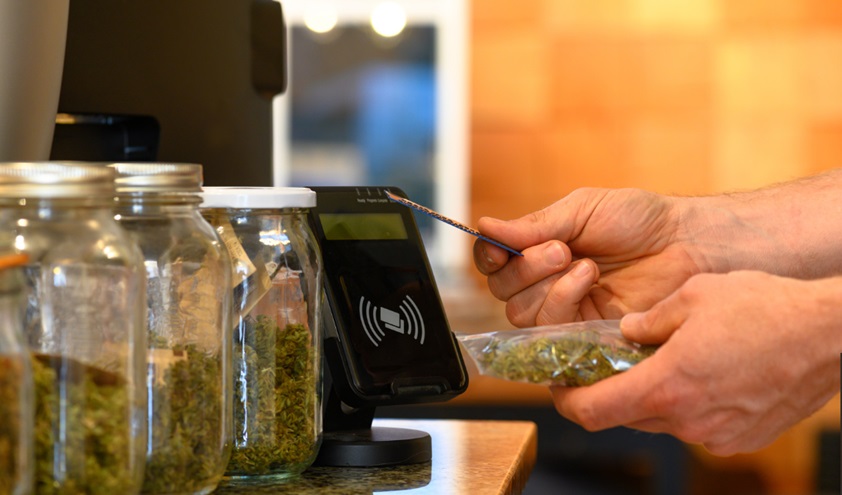The legalization of cannabis has transformed the way people access and use this once-prohibited substance. In states like Maryland, the rise of licensed dispensaries has been pivotal in ensuring the safe and responsible consumption of cannabis. A weed dispensary in Maryland plays a crucial role by providing regulated products, educating consumers on safe usage, and ensuring strict quality control. As dispensaries continue to evolve, they not only offer access to high-quality cannabis but also promote public health and safety, setting new standards for responsible consumption.
The Evolution of Cannabis Dispensaries
The shift from cannabis prohibition to legalization has been a complex and extended journey. As societal views and legal frameworks have evolved, so too have distribution methods. Today, cannabis dispensaries act as the primary conduit between producers and consumers, offering a regulated and monitored avenue for products to reach the market.
In states like Maryland, dispensaries operate under strict regulations, ensuring that products are tested for quality and potency. This level of oversight is unprecedented in the history of cannabis consumption and marks a significant step towards safer usage practices.
Education: The Cornerstone of Safe Usage
One of the most critical roles that weed dispensaries play in promoting safe usage is through education. Many consumers, especially those new to cannabis, may be unfamiliar with different strains, consumption methods, and potential effects. Dispensaries bridge this knowledge gap by providing comprehensive information about their products.
Staff members at reputable dispensaries are often well-trained in cannabis science and can offer personalized recommendations based on a customer’s needs and experience level. This guidance is invaluable in preventing adverse reactions and ensuring that users can make informed decisions about their consumption.
Quality Control and Product Safety
The illegal cannabis market has long been plagued by issues of product consistency and safety. Contaminants, inconsistent potency, and mislabeled products pose significant risks to consumers. Weed dispensaries, operating within a regulated framework, address these concerns head-on.
Products sold in licensed dispensaries undergo rigorous testing for contaminants such as pesticides, heavy metals, and microbial growth. Additionally, precise labeling of THC and CBD content allows users to dose their intake accurately, reducing the risk of overconsumption and its associated negative effects.
Promoting Responsible Consumption
Weed dispensaries play a crucial role in fostering a culture of responsible cannabis use. Many offer programs and resources aimed at educating consumers about the potential risks of cannabis use, including impaired driving and the dangers of combining cannabis with other substances.
Some dispensaries go further by partnering with local organizations to promote community health and safety initiatives. These efforts contribute to a more informed and responsible cannabis-consuming population, which in turn helps to destigmatize cannabis use and integrate it more seamlessly into society.
Tailored Products for Medical Users
For many individuals, cannabis serves an important medical purpose. Weed dispensaries cater to this demographic by offering products specifically formulated for therapeutic use. From strains bred to alleviate specific symptoms to precisely dosed edibles and tinctures, these medical-grade products provide patients with reliable and consistent relief.
The availability of such products through licensed dispensaries ensures that medical users can access their medication in a safe and legal manner, with the added benefit of professional guidance on usage and potential interactions with other medications.
Challenges and Future Considerations
Despite the positive impact of weed dispensaries on promoting safe cannabis usage, challenges remain. Balancing accessibility with responsible distribution, navigating evolving regulations, and addressing ongoing stigma are ongoing concerns for the industry.
Choosing a reliable weed dispensary is crucial for consumers looking to ensure they are getting safe, high-quality products. As the industry continues to mature, we can expect to see further innovations in product safety, consumer education, and community engagement from dispensaries.
Conclusion
The role of weed dispensaries in promoting the safe usage of cannabis cannot be overstated. By providing a regulated environment for cannabis sales, offering educational resources, ensuring product safety, and fostering responsible consumption habits, these establishments are transforming the landscape of cannabis use. As more states move towards legalization, the importance of dispensaries in maintaining public health and safety will only continue to grow, marking a new era in the relationship between society and cannabis.









